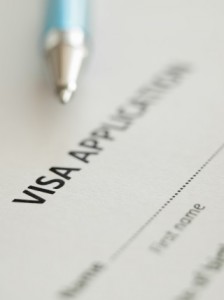 There are currently more than 65,000 international students in the Netherlands and for many good reasons. The Netherlands is one of the safest countries in the world- this means not only can students from around the world rest assured that they won’t have too many safety blunders while abroad, but convincing parents to allow a semester, year or degree pursuit overseas to happen is much easier. Safety combined with the endless number of things to do and culture to experience, along with being a hub to other European countries, makes the Netherlands a desirable location to study.
There are currently more than 65,000 international students in the Netherlands and for many good reasons. The Netherlands is one of the safest countries in the world- this means not only can students from around the world rest assured that they won’t have too many safety blunders while abroad, but convincing parents to allow a semester, year or degree pursuit overseas to happen is much easier. Safety combined with the endless number of things to do and culture to experience, along with being a hub to other European countries, makes the Netherlands a desirable location to study.
Students who choose to study in the Netherlands must keep in mind that having health insurance for medical expenses is required. Students can locate their situation below and see what type of health insurance for international students in the Netherlands is needed as detailed in the Aliens Law.
International students under the age of 30:
International students over the age of 30:
Only students in the Netherlands who are there solely for study purposes are able to purchase a private health insurance plan. This means that any student that has a job (even part-time) or an internship will be required to obtain Dutch public healthcare insurance.
Get more information on health insurance for international students in the Netherlands here.
When you’re studying internationally, choosing the right insurance plan can be daunting. You want to make sure you’re covered in case you need to seek medical attention. If you are a woman studying internationally or if your wife is traveling with you while you study internationally, maternity coverage may or may not be on your mind. Pregnancies can occur, planned or not, and health care for it can be expensive. Maternity benefits are an important part of a comprehensive international student insurance plan.
Check out our Student Secure insurance that could cover maternity
A typical pregnancy includes prenatal care, delivery, and postnatal care with a doctor to ensure a healthy baby and mother. Prenatal care includes visits and check-ups with the doctor before the baby is born. It includes ultrasounds and other tests to make sure the baby is developing in a healthy way. If your pregnancy is considered high-risk because of your age or health conditions, you may require more frequent visits and special care. You may also need to see a doctor who works with high-risk pregnancies. Without insurance, prenatal care alone typically costs around $2,000 or more in the USA.
The delivery of a baby includes a hospital stay which can vary in length depending on the type of birth and complications, and is the most expensive portion of the pregnancy. Delivery can range in cost from around $3,000 for uncomplicated vaginal births, around $5,000 for cesarean, to over $7,000 for complicated births. Postnatal care lasts six to eight weeks after the birth and ensures the physical and emotional health of the mother and baby.
 Most insurance plans will not cover a pregnancy if you are pregnant before your plan starts – so think ahead!
Most insurance plans will not cover a pregnancy if you are pregnant before your plan starts – so think ahead!
All of these expenses add up fast and if your insurance plan does not include maternity coverage you might find yourself in a tight spot. Additionally, most insurance plans will not cover a pregnancy if you become pregnant before your policy becomes effective – so think ahead! Our Major Medical plan – the Global Medical – has an optional maternity rider that you can add to your policy for an additional annual premium. This plan, however, does have a 12-month waiting period before you can receive full maternity benefits.
Maternity coverage is one of many important considerations when choosing your insurance plan. For more information, please visit our Insurance Explained section or contact our friendly customer service representatives.
With the recent news that travelers from the United Arab Emirates (UAE) will no longer need to apply for the Schengen Visa to travel to Europe, travel to Europe for citizens from the UAE will be much easier.
The restriction will be lifted once a joint team meets to execute the new resolution, and hopefully this will be implemented as soon as possible. There were also talks recently where Kuwait were pushing for the exemption for their citizens – but no decision has been made there yet.
We also learned just this week that the EU commission has approved a whole range of changes to make Schengen Visa Travel easier for everyone with alterations to the actual visa process. This includes changes such as the requirement of supporting documentation, introduction of multi-entry visas and removal of the fee for those under 18 years old. It is not clear when any of these restrictions and changes will be implemented, but it should make travel to the Schengen Countries easier for many.
At the moment the current regulations still apply, and so if you are planning to travel to any of the Schengen countries for up to 90 days you will need to apply for a Schengen Visa before you travel. To learn more about the process of applying for a visa, please visit our website here, where you can find out what countries it impacts and what documentation your need.
The Schengen Visa also has very specific insurance requirements, making sure you are covered when you travel through the countries. If you need assistance in purchasing or finding the right plan for your visa, please let us know.
Hopefully when these new changes come into play, travel to Schengen Countries will be much easier and more streamlined!
 In case you didn’t notice, International Student Insurance has a new look! You may have noticed that we’ve updated our logo and you’ll see him popping up all over – throughout our website, Facebook, Twitter, Google +, emails and more!
In case you didn’t notice, International Student Insurance has a new look! You may have noticed that we’ve updated our logo and you’ll see him popping up all over – throughout our website, Facebook, Twitter, Google +, emails and more!
Our new logo marks a unification of our network of sites. While his color may change, he will not. This logo is currently being phased in throughout our entire network – so be on the look out and see how many colors you can spot!
Not only that, but our new logo also starts our refresh of International Student Insurance that you’ll see throughout the year. We are excited to spend the next year improving the user experience, from more engaging and interactive pages, a fresh look, and lots of fun through our social media accounts.
We look forward to traveling with you on your journey overseas, and want to make sure that we are there when you need us. We will continue offering great insurance products to meet your everyday international needs.
Want more? Check out the latest:
Is there something you are looking for? Do you have questions about your insurance or healthcare? Let us know! Simply respond to this blog or find us on Facebook, Twitter or Google+. We look forward to hearing from you soon!
 When you’re traveling outside of your home country, you may be concerned about health insurance. If you get sick or injured you want to make sure you are protected in a foreign place. But what type of insurance do you need? Is regular health insurance enough? What most people don’t know is that traveling internationally comes with increased insurance benefit needs that you probably would not be compelled to have in your home country. These special international benefits are Emergency Medical Evacuation and Repatriation.
When you’re traveling outside of your home country, you may be concerned about health insurance. If you get sick or injured you want to make sure you are protected in a foreign place. But what type of insurance do you need? Is regular health insurance enough? What most people don’t know is that traveling internationally comes with increased insurance benefit needs that you probably would not be compelled to have in your home country. These special international benefits are Emergency Medical Evacuation and Repatriation.
Emergency Medical Evacuation – When you’re far from home, it’s hard to know where the nearest medical facility is and/or if that facility can provide the kind of care you need in an emergency situation. Evacuation coverage typically covers expenses associated with a medical emergency that requires you to travel to find the nearest qualified medical facility. It also includes the cost of returning to your home country (in some cases) or back to the country where evacuation occurred.
This is not something most people consider when they aren’t traveling internationally. However, the expenses associated with an emergency medical evacuation can be quite expensive. The Sky Rescue Evacuation plan is an excellent option both as a basic travel insurance plan or as an add-on to a health insurance plan that covers you internationally. The plan also includes Emergency Reunion coverage, which pays for reasonable travel for a relative or friend to join you for support in case you are evacuated.
Repatriation– Also known as the Return of Mortal Remains, Repatriation is another important benefit that people often do not think about (or want to think about). Repatriation coverage will pay for the expenses associated with returning your body or ashes back to your home country in case you accidentally die during your travel. The Sky Rescue Evacuation plan also includes a Repatriation benefit in case the worst were to happen.
A lot of visas around the world require both Emergency Medical Evacuation and Repatriation coverage before you can enter the country. This applies to the J-1 visa in the US and the Schengen visa in European countries. If you already have a plan that offers medical coverage internationally, the Sky Rescue will supplement your existing coverage to meet your requirements in most cases. You should also consider purchasing this coverage if it is not required, for your safety and for your family while you are traveling.
Spring break is a time to sit back, relax and leave the stress of school behind for a few days. Many international students choose to take advantage of this break by taking a vacation to either another state (perhaps through a road trip) or to a new, neighboring country. While spring break is a time to “let your hair down” and enjoy not having tests, essays or 8am classes- it’s still important to keep your fun safe. Here are the top 5 tips for a safe spring break:
Using these top 5 tips for a safe spring break will help ensure you have safe, yet fun time on your break!
The March 2014 travel warnings are a listing of any warnings that have been posted by the US Department of State in the month of February, warning travelers who plan to visit those countries.
Countries listed through the month of February 2014 include:
Ukraine – February 28th 2014
The Department of State warns travelers to defer all non-essential travel to Ukraine, and particularly the Crimean Peninsula, due to the potential for instability following the departure of former President Yanukovych and the establishment of a new government. Groups have staged protests, set up roadblocks, and occupied government buildings in several cities throughout Ukraine since November 2013.
Afghanistan – February 20th 2014
The Department of State warns travelers against travel to Afghanistan. No province in Afghanistan should be considered immune from violence and banditry, and the strong possibility exists throughout the country for hostile acts, either targeted or random, against U.S. and other foreign nationals at any time. Remnants of the former Taliban regime and members of other terrorist organizations hostile to the Government of the Islamic Republic of Afghanistan and foreign nationals remain active in every province of the country.
Saudi Arabia – February 11th 2014
The Department of State urges travelers to carefully consider the risks of traveling to Saudi Arabia. The security climate in Saudi Arabia continues to improve, despite an attack of unknown motivation on two German Embassy officials in Awamiyah in the Eastern Province in January 2014. The last major terrorist attack against foreign nationals occurred in 2007, but security threats are ongoing and terrorist groups, some affiliated with al-Qaida, may target both Saudi and Western interests.
Somalia – February 7th 2014
The U.S. Department of State continues to warn travelers to avoid all travel to Somalia. There is at this time no U.S. Embassy or other formal U.S. diplomatic presence in Somalia. The security situation inside Somalia remains unstable and dangerous. Terrorist operatives and armed groups in Somalia have demonstrated their intent to attack Somali authorities, the African Union Mission in Somalia (AMISOM), and other non-military targets. Kidnapping, bombings, murder, illegal roadblocks, banditry, and other violent incidents and threats to foreign nationals can occur in any region of Somalia.
Algeria – February 6th 2014
The Department of State continues to warn travelers of the risks of travel to Algeria. There is a high threat of terrorism and kidnappings in Algeria. This kidnapping threat was noted in the Department of State’s latest Worldwide Caution. Although the major cities are heavily policed, attacks could still potentially take place. The majority of terrorist attacks, including bombings, false roadblocks, kidnappings, and ambushes occur in areas of the country east and south of Algiers.
Pakistan – February 5th 2014
The Department of State warns travelers to defer all non-essential travel to Pakistan. The presence of several foreign and indigenous terrorist groups poses a potential danger to those throughout Pakistan. Across the country, terrorist attacks frequently occur against civilian, government, and foreign targets. Attacks have included armed assaults on heavily guarded sites, including Pakistani military installations.
Israel, The West Bank and Gaza – February 3rd, 2014
The security environment remains complex in Israel, the West Bank, and Gaza, and travelers need to be aware of the continuing risks of travel to these areas, particularly to areas described in this Travel Warning where there are heightened tensions and security risks.
While traveling, please keep these travel warnings in mind and remember to exercise extra care if you are visiting these countries, and check with your travel insurance provider to make sure you still have coverage in place – sometimes some benefits can be excluded for countries under a travel warning. Travelers are also advised to enroll through the U.S. Department of State’s Smart Traveler Enrollment Program (STEP) to stay up to date on travel security information.
 Many students want to study in the United States, but most don’t know where to truly begin. To be legally admitted into the US to attend a university or other academic institution you will need to apply for a F-1 student visa.
Many students want to study in the United States, but most don’t know where to truly begin. To be legally admitted into the US to attend a university or other academic institution you will need to apply for a F-1 student visa.
The process to obtain your F-1 visa involves 5 specific steps that must be completed thoroughly and with great care. Here is the F1 Visa Application Cycle explained:
1. Be Accepted at an SEVP Approved School
Start by sending out those applications! InternationalStudent.com is a great place to start your school search. You can find schools that fit your criteria and request more information and application details from the schools directly.
2. Pay your SEVIS Fee and Receive your I-20
After you are accepted to the US school of your dreams, you’ll pay the SEVIS I-901 Fee and your school will provide you with an I-20 Form. The I-20 is your preliminary ticket into the US and should be presented during your F-1 Visa interview, described below.
3. Complete the Visa Application
Then, you must complete the F-1 Visa application. This can usually be completed online but it can vary depending on your US embassy.
4. Schedule and Prepare for your Interview
You’ll schedule your visa interview with your US embassy or consulate. It should be scheduled no more than 120 days of your first day of class or study. If issued, you will be able to enter the US up to 30 days before your studies begin.
5. Attend your F-1 Visa Interview
Finally, attend your F-1 visa interview well prepared. Be sure to bring all the appropriate documents, and be prepared to answer these F1 Visa Interview Questions.
Following your interview, all eligible students will be approved at the discretion of the consular office. Enjoy your time in the US!
 If you will be study abroad in Italy, it’s important to get your health care in check so that you meet your visa requirements and have protection in case you need medical care. There are two aspects that will affect your health insurance coverage mandated by the Italian government:
If you will be study abroad in Italy, it’s important to get your health care in check so that you meet your visa requirements and have protection in case you need medical care. There are two aspects that will affect your health insurance coverage mandated by the Italian government:
Country of Origin
Your country of origin will determine if you need to purchase a private health insurance or if you are covered by your home country. Select countries – particularly those part of the European Union (EU) – have bilateral agreements to help cover medical expenses. Other countries leave you on your own to cover your own medical bills.
EU Residents
If you are a EU resident, you are allowed to study abroad in Italy without a visa for an unspecified amount of time. Students with a European Health Insurance Card (EHIC) are entitled to the same medical coverage they would get back in their home country while studying in Italy. The EHIC card only covers state provided services and not private facilities, so if students want to seek this level of care they will need to purchase a private health insurance plan for Italy.
Non-EU Residents
If you are a non-EU resident, then the visa and your health care may depend on your length of stay in Italy.
If you will be traveling to Italy for 90 days or less… you may be traveling under the Schengen Visa. This visa does require that you have a minimum of 37,500 euros in order to be permitted entry to the country. You will need to show proof of coverage with a letter from the insurance company showing that you have coverage for medical expenses, medical evacuation and repatriation of remains.
If you will be traveling to Italy for more than 90 days… you will need to apply for a Student Visa which entitles you to medical care in the country. When applying for your Student Visa, you will need to show that you can cover your medical expenses. You have three options to do so:
If you are in need of a health insurance for Italy, we offer the Student Secure, Atlas Travel and Europe Travel plan that is specifically designed to meet the needs of study abroad students in Italy. These three plans will meet the minimum requirements and provide you with the proper documentation you need to present to the consulate.